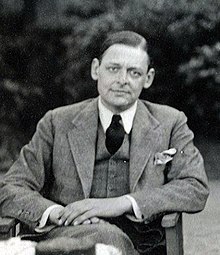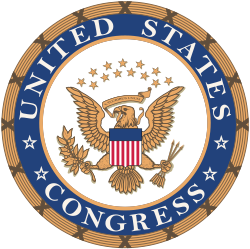1933 ⟶ T.S. Eliot's Anti-Jewish Remarks in Lectures
In a series of lectures delivered at the University of Virgi...Year
1871
1933
1934
1936
1996
🗣️ Pope Pius IX's Antisemitic Remarks
Speech of Pope Pius IX in regard to Jews: "of these dogs, there are too many of them at present in Rome, and we hear them howling in the streets, and they are disturbing us in all places."⟶

Pope Pius IXAntisemitismCatholic ChurchIdeology19th CenturyReligious Anti-JudaismRome
 Italy
Italy🗣️ T.S. Eliot's Anti-Jewish Remarks in Lectures
In a series of lectures delivered at the University of Virginia in 1933, published under the title After Strange Gods: A Primer of Modern Heresy (1934), T.S. Eliot wrote of societal tradition and coherence, "What is still more important is unity of religious background, and reasons of race and religion combine to make any large number of free-thinking Jews undesirable." Eliot never re-published this book/lecture.:⟶

AntisemitismIdeologyIntellectualsT.S. EliotHeresyCultural homogeneityModernism
 United States
United States📰 The Franklin Prophecy's First Appearance
The first appearance of The Franklin Prophecy on the pages of William Dudley Pelley's pro-Nazi weekly magazine Liberation. According to the US Congress report:⟶

AntisemitismIdeologyPropagandaConspiracy theoryWilliam Dudley PelleyPro-Nazi
 United States
United States🎭 T.S. Eliot's Caricature of Fascists in "The Rock"
In his 1934 pageant play The Rock, T.S. Eliot distances himself from Fascist movements of the thirties by caricaturing Oswald Mosley's Blackshirts, who 'firmly refuse/ To descend to palaver with anthropoid Jews'. The "new evangels" of totalitarianism are presented as antithetical to the spirit of Christianity.⟶

AntisemitismIdeologyT.S. EliotFascismBlackshirtsLiterary criticismCaricature
 United Kingdom
United Kingdom💌 Cardinal Hlond's Pastoral Letter on the Jewish Problem
Cardinal August Hlond, as Primate of Poland issued a pastoral letter on Catholic moral principles. The long (5600-word) letter covered Catholic ethics policy, ethics principles and a section on "sins" (Z Naszych Grzechów) that addressed Christian shortcomings to love one's neighbours in accordance with God's law. The latter section included a brief discussion of the "Jewish problem" (Problem żydowski): "So long as Jews remain Jews, a Jewish problem exists and will continue to exist (...) It is a fact that Jews are waging war against the Catholic church, that they are steeped in free-thinking, and constitute the vanguard of atheism, the Bolshevik movement, and revolutionary activity. It is a fact that Jews have a corruptive influence on morals and that their publishing houses are spreading pornography. It is true that Jews are perpetrating fraud, practicing usury, and dealing in prostitution. It is true that, from a religious and ethical point of view, Jewish youth are having a negative influence on the Catholic youth in our schools." Hlond tempered these remarks with an admission that "not all Jews are this way" and forbade assaults on Jews or attacks on their property. Yet, despite a warning to Catholics not to take an anti-Jewish moral stance, interspersed in the letter's words of friendship was an explicit condemnation of Jewish culture and also Judaism for its rejection of Jesus Christ" target="_blank" rel="noopener noreferrer" class="text-blue-600 hover:underline dark:text-gray-300 dark:underline dark:hover:text-gray-100">Christ: "It is good to prefer your own kind when shopping, to avoid Jewish stores and Jewish stalls in the marketplace (...) One should stay away from the harmful moral influence of Jews, keep away from their anti-Christian culture, and especially boycott the Jewish press and demoralizing Jewish publications. (...) We do not honor the indescribable tragedy of that nation, which was the guardian of the idea of the Messiah and from which was born the Savior. When divine mercy enlightens a Jew to sincerely accept his and our Messiah, let us greet him into our Christian ranks with joy." Hlond's letter was criticized by Polish Jewish groups who saw it as offering support and a rationalization for antisemitism. What also caught the attention of historians was the remark about not hating anyone, "not even Jews", implying "not even enemies". Were Jews to be loved as neighbors or enemies? However, while Hlond promoted the expulsion of German civilians after World War II, he had always consistently condemned the Nazi persecution of the Jews.⟶

AntisemitismIdeologyCatholic ChurchPolandCardinal HlondReligious antisemitismMoral condemnationPolish Jews
 Poland
Poland✍️ T.S. Eliot Accused of Antisemitism
The depiction of Jews in some of T.S. Eliot's poems has led several critics to accuse him of anti-Semitism. This case has been presented most forcefully in a study by Anthony Julius: T. S. Eliot, Anti-Semitism, and Literary Form (1996). In "Gerontion", Eliot writes, in the voice of the poem's elderly narrator, "And the jew squats on the window sill, the owner / Spawned in some estaminet of Antwerp." Another well-known example appears in the poem, "Burbank with a Baedeker: Bleistein with a Cigar". In this poem, Eliot wrote, "The rats are underneath the piles. / The jew is underneath the lot. / Money in furs." Interpreting the line as an indirect comparison of Jews to rats, Julius writes, "The anti-Semitism is unmistakable. It reaches out like a clear signal to the reader." Julius's viewpoint has been supported by literary critics such as Harold Bloom, Christopher Ricks, George Steiner, Tom Paulin and James Fenton.⟶

LiteratureT.S. EliotAntisemitismLiterary CriticismIdeology20th CenturyPoetry